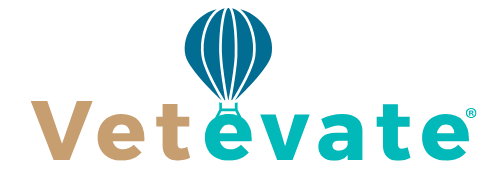Working with animals can be an incredibly rewarding and fulfilling experience, both personally and professionally. There are many different types of jobs that involve working with animals, from veterinary medicine and animal training to wildlife conservation and animal rescue. Regardless of the specific job, working with animals can have a positive impact on mental health and well-being.
There are many ways in which working with animals can benefit mental health, including increased social support, reduced stress levels, and enhanced emotional regulation. However, there are also potential drawbacks of working with animals, such as compassion fatigue and emotional exhaustion. But don’t worry, we have some practical advice for those considering a career in animal-related fields, including the importance of self-care and boundaries.
One of the most significant ways in which working with animals can benefit mental health is through increased social support. Many animal-related jobs involve working as part of a team, whether in a veterinary clinic or a wildlife rehabilitation center. This sense of camaraderie and shared purpose can be incredibly beneficial for individuals who struggle with social isolation or loneliness. Studies have shown that social support can improve mental health outcomes, including reduced symptoms of anxiety and depression.
In addition, working with animals can provide a sense of purpose and meaning that can be difficult to find in other jobs. For many people, the opportunity to help animals and make a positive difference in the world can be incredibly fulfilling. This sense of purpose can lead to increased feelings of self-worth and self-esteem, which are also associated with improved mental health outcomes.
Another benefit of working with animals is the potential to reduce stress levels. Many animal-related jobs involve spending time outdoors or in nature, which has been shown to have a calming effect on the mind and body. Interacting with animals has been shown to reduce levels of the stress hormone cortisol. This can lead to a reduced risk of stress-related health problems, such as high blood pressure and heart disease.
Working with animals can also enhance emotional regulation. Animals have been shown to have a positive effect on mood, including reducing feelings of sadness and anxiety. In addition, interacting with animals can increase levels of the neurotransmitter oxytocin, which is associated with feelings of trust, empathy, and social bonding. This can lead to improved emotional regulation and a greater ability to manage stress and difficult emotions.
Despite the many benefits of working with animals, there are also potential drawbacks to consider. One of the most significant challenges is the potential for compassion fatigue or emotional exhaustion. Many animal-related jobs involve working with animals who are sick, injured, or in distress. This can be emotionally challenging, and it is important for individuals in these roles to prioritize self-care and emotional boundaries. In addition, working with animals can be physically demanding and may require long hours or work in difficult conditions.
For those considering a career in animal-related fields, it is important to prioritize self-care and boundary-setting. This may include developing coping strategies for managing difficult emotions, seeking support from colleagues and mental health professionals, and prioritizing rest and self-care. Additionally, it is important to be realistic about the demands of the job and to seek out opportunities for personal and professional growth.
Working with animals can have a significant positive impact on mental health and well-being. From increased social support to reduced stress levels and enhanced emotional regulation, there are many benefits to working in animal-related fields. However, it is important to be aware of the potential challenges, including compassion fatigue and emotional exhaustion.
Vetevate®: here for YOU
Finding a job that can improve your mental health can be challenging, especially if you’re passionate about animals. Fortunately, the Vetevate® website can help you find a job that not only aligns with your interests but also promotes positive mental health.
Animal-related jobs, such as working at a zoo, animal shelter, or veterinary clinic, can offer numerous benefits for mental health. Research has shown that spending time with animals can decrease stress and anxiety, lower blood pressure, and elevate mood. Animals can also provide a sense of purpose, companionship, and unconditional love, which can improve overall well-being.
The Vetevate® website can connect you with various animal-related job opportunities in your area. By exploring the website, you can find jobs that align with your interests and skill set. For example, if you enjoy working with dogs, you might find a job as a dog trainer or dog groomer. Alternatively, if you prefer working with exotic animals, you might find a job as a zookeeper or wildlife rehabilitation specialist.
One of the most significant advantages of using the Vetevate® website is that it can help you find a job that aligns with your values. For instance, if you’re an animal lover, you might prefer working at an animal shelter or rescue organization, where you can make a positive impact on the lives of animals in need. Alternatively, if you’re passionate about animal welfare, you might seek a job at an animal rights organization, where you can advocate for animal rights and fight against animal cruelty.
Another benefit of using the Vetevate® website is that it can help you find a job that offers work-life balance. Burnout is a common issue in the animal-related industry, especially for those working in high-stress environments such as veterinary clinics or animal shelters. However, by using the Vetevate® website, you can find a job that offers flexible hours, reasonable workload, and a supportive work culture, which can prevent burnout and promote overall well-being.
In addition, the Vetevate® website can provide resources and information on how to maintain good mental health while working with animals. For example, the website might offer tips on stress management, self-care, and work-life balance. By incorporating these resources into your daily routine, you can improve your mental health and prevent burnout in the long run.
The Vetevate® website can help you find a job that not only aligns with your interests but also promotes positive mental health. By exploring the website, you can find jobs that align with your values, offer work-life balance, and provide resources on maintaining good mental health. With the right job, you can improve your overall well-being while pursuing your passion for animals.




